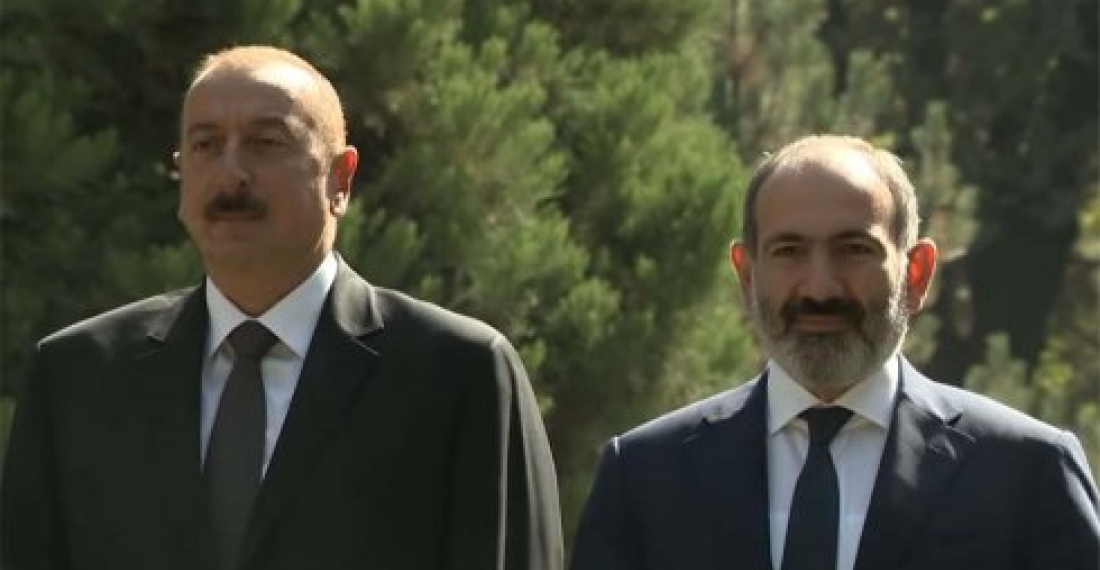Armenian prime minister Nikol Pashinyan and Azerbaijan president Ilham Aliyev have tweeted on the prospect for a peaceful settlement of the Karabakh conflict on Friday (14 December).
"Peaceful resolution of Nagorno Karabakh conflict remains top priority for us", Armenian prime minister Nikol Pashinyan tweeted. "We will continue with the peace process for the benefit of regional peace and security. Resolution requires genuine efforts of all parties", Armenpress reports.
"2019 will give a new impetus to the process of settling the Armenian-Azerbaijani Nagorno-Karabakh conflict", president Ilham Aliyev tweeted, as reported by haqqin.az.
Hopes for a breakthrough in discussions on the settlement of the Karabakh conflict have increased since president Aliyev and prime minister Pashinyan had an informal discussion on Karabakh on the margins of the summit of the CIS states in Dushambe in September 2018.
source; commonspace.eu
photo: President Ilham Aliyev of Azerbaijan and Prime Minister Nikol Pashinyan of Armenia had an informal discussion on Karabakh at their meeting in Dushambe in September 2018 (archive picture)







